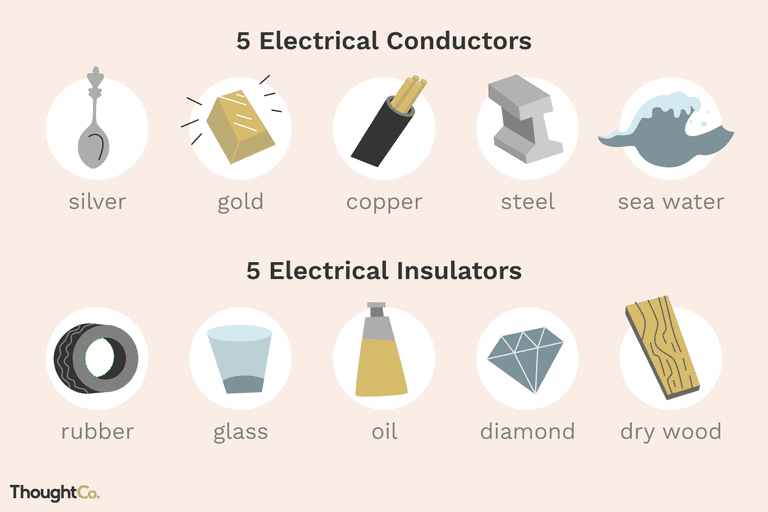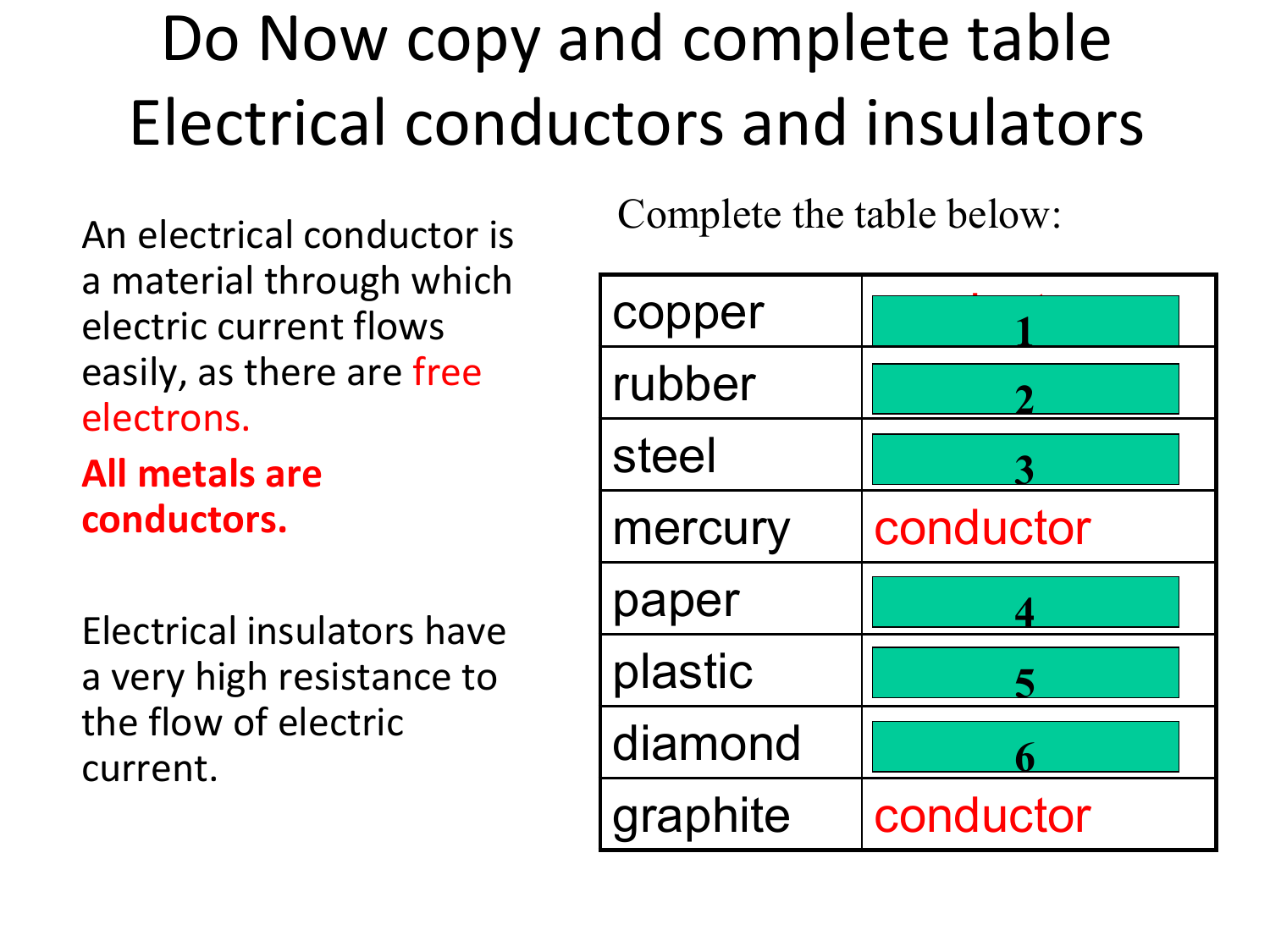Best Describes the Difference Between an Electrical Insulator and Conductor
Thermal Conductivity Thermal conductivity inside insulators is low. Two insulators separated by a conductor B.

Conductors And Insulators Definition Applications Differences Examples
Iron copper aluminium etc.
. A conductor is some. When any voltage is applied to the conductor electric charged particles easily flow from valence band to conduction bandThus conductor is a good conductor of electricity. Two conductors separated by an insulator C.
When the insulator connects to the other electrical power devices the current will not flow in the circuit. One of the major difference between. Electric charge or heat to pass through it easily.
Insulators have strong molecular bonds. Conductors are the substances which allow the electricity to pass through them while insulators resist electricity. This is because the outer electrons of a conductor are not anchored like those of an insulator.
The conductivity of insulators is low. Conductors have free charges while insulators dont have free charges. Main Differences Between Conductor and Insulator.
In conductors the electric field can only exist on the surface of the material but remains zero inside it. Conductors in contrast have high thermal conductivity. Materials that do not conduct electricity are insulators.
The main difference between conductor and insulator is that a conductor conducts electricity or heat well whereas an insulator conducts electricity or heat poorly. In insulators the electric field can neither exist on the surface nor inside the material. Electrical conductors have zero or very little resistance while electrical insulators have very high or infinite resistance.
The difference between conductors and insulators is that conductors are those materials that conduct electric current easily while insulators are those materials that do not conduct current easily. An ammeter measures current and a voltmeter measures a potential difference. Two moving point charges that are in contact D.
Electric circuits can be series or parallel. Those substances that allow electricity to pass through their properties are called bad conductors. 9 rows The conductors are used for making conductor wires and cables for carrying electric current.
What is the difference between Electrical Conductors and Insulators. 16 rows The conductor and insulator are the types of material. The conductor is considered as good at conducting electricity and heat whereas insulator is considered as poor conductor of heat and electricity.
The conductors can pass electricity through them due to free electrons present in them. Difference between the Closed and Open circuit. Copper Silver Gold Rubber are some examples of conductors and insulators.
A conductor is something which allows electric current to flow through it freely whereas an insulator prevents any electric current flowing through it. Two point charges separated by a distance. Another difference between conductors and insulators is in the movement of the electrons through them.
Conductors have high conductivity whereas insulators have low conductivity. This circuit works as an open circuit. The most common difference between the two is that while conductors allow free flow of electrons from one atom to another insulators restrict free flow of electrons.
Conductor connect with an Electrical Circuit. Electric filed is observed on the top and in the inner part of the conductor. The most common difference between the two is that while conductors allow free flow of electrons from one atom to another insulators restrict free flow of electrons.
The difference between conductors and insulators is that conductors are those materials that conduct electric current easily while insulators are those materials that do not conduct current easily. The difference between a conductor and an insulator is that a conductor allows electrons to travel. Insulators have very low conductivity.
A conductor allows energy eg. While molecular bonds are very weak in conductors. The conductor have little resistance.
A conductor easily transfers energy in the form of electricity andor heat while an insulator does not easily transfer these types of energy. The valence band remains full since no movement of electrons occurs and as a result the conduction band remains empty as well. Based on whether we are interested in a materials ability to conduct electricity or heat we use terms electrical conductorinsulator or thermal conductorinsulator.
The term invertiser describes a substance that cannot pass electricity through. Some materials have low. While an insulator does not let electric current or heat to travel through it.
Conductors allow electrical energy to pass through them whereas insulators do not allow electrical energy to pass through them. The major difference between conductor insulator and semiconductor is defined by the flow of charged particles under the influence of electric field. Insulators have very high strength and the electrons are so bound together.
Materials that conduct electricity are conductors. Admin July 3 2020. Which of the following best describes a capacitor.
Conductors allow electrical energy to pass through them whereas insulators. There is no electrical field in. An insulator and a conductor of electricity are two different types of conductors.
0 12817 2 minutes read. Insulator in Electrical Circuit. Electrons can move freely through conductors while insulators dont let them pass through.
The main difference between the conductor semiconductor insulator is in its conduction. These are the top 12 differences between the electrical. Copper Silver Gold Rubber are.
Answer 1 of 10. What Is The Difference Between Insulator And Poor Conductor. The conductor who is best at conducting heat and electricity has more free carriers present in them like electrons while insulator which is best at not conducting electricity do no contains many free carriers of.
In insulators there is a large band gap between the conduction and valence band. Conductors let current through while insulators do not.

Conduction And Insulation Science Quiz Quizizz

No comments for "Best Describes the Difference Between an Electrical Insulator and Conductor"
Post a Comment